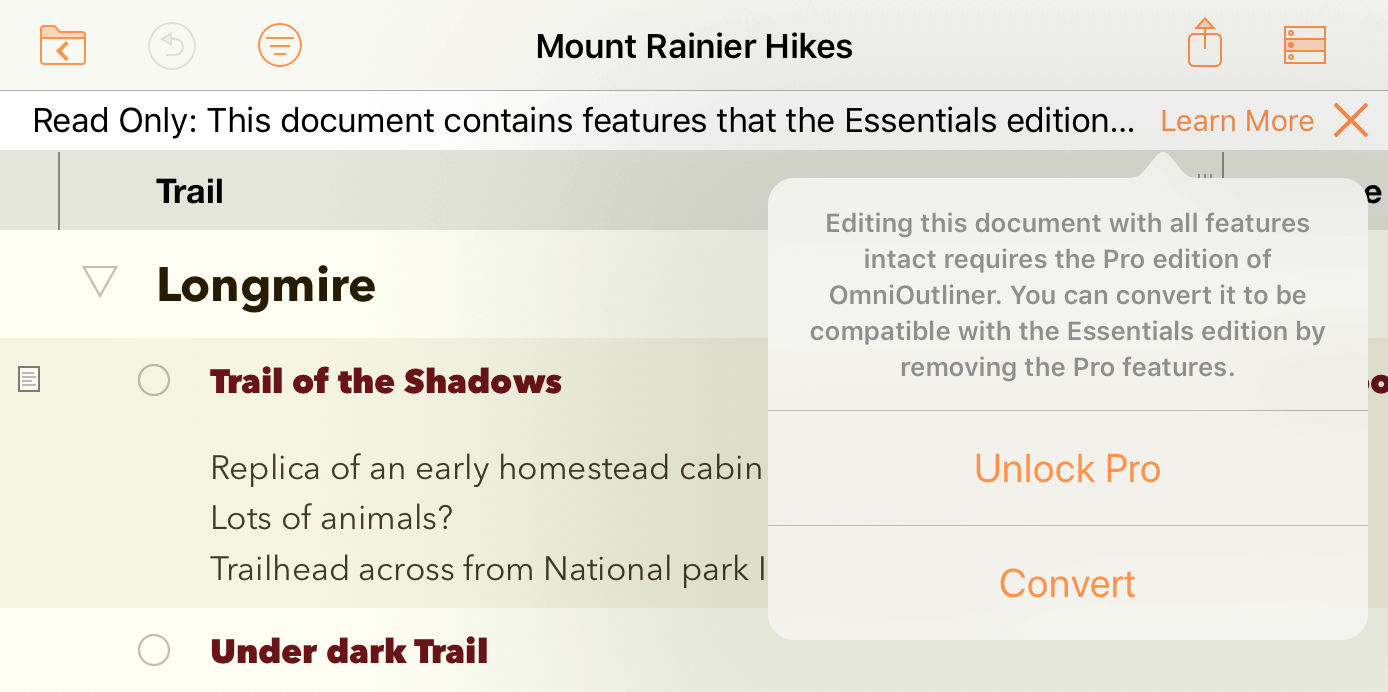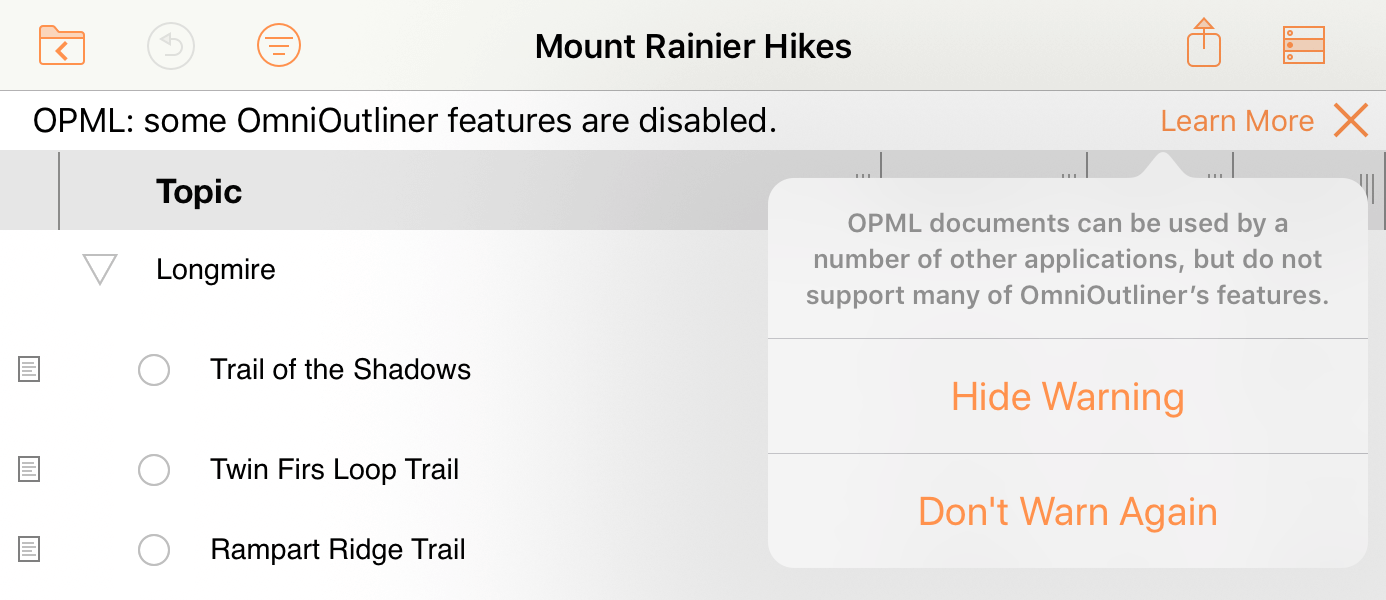Opening and Exporting Files
OmniOutliner supports opening, editing, and saving files in its own native OmniOutliner Outline (.ooutline) format. In addition, there are other file types that OmniOutliner can import and convert into the standard OmniOutliner file format for subsequent editing.
OmniOutliner can also export from its native format to several file types used by other applications.
Opening and Importing
OmniOutliner supports working with files in two different ways, depending on the file type: opening and importing.
Files are opened when OmniOutliner can natively read and write them, saving them wherever they are originally located. This includes the following file types):
- OmniOutliner Document (.ooutline, .oo3)
- Outline Processor Markup Language Document (.opml)
OmniOutliner Essentials recognizes OmniOutliner Template (.otemplate and .oo3template) files, but cannot edit or save them. Any external template files brought into OmniOutliner Essentials appear only in the Template Chooser when creating a new document or applying a template theme.
To remove unwanted custom templates, navigate to the OmniOutliner folder on your device using the Files app and select them for deletion there.
When opening files in older OmniOutliner formats (such as .oo3), a notice bar appears beneath the document toolbar indicating that some features are disabled. Tap Learn More in the notice bar and choose Convert to update the file to the newest format, or choose Hide Warning to leave the file as-is.

The notice bar also appears when opening files created in OmniOutliner Pro for Mac or iOS that contain features not supported by the Essentials edition. These files can be read with OmniOutliner Essentials, but not edited or saved. In this case, tap Learn More for options to Unlock OmniOutliner Pro or Convert the file to an editable format without the Pro features.
Import File Types
The following formats can be imported by OmniOutliner. Copying a file into OmniOutliner in one of these formats converts it to a native OmniOutliner file for subsequent editing (the original file is left behind in its original format).
- Plain Text (.txt)
- Rich Text Format (.rtf)
OPML Editing
OmniOutliner 3 for iOS supports native editing of OPML files. OPML is a structured writing file format that is widely used among various platforms, but does not support the rich styling controls offered by OmniOutliner.
When editing an OPML file in OmniOutliner, most inspector controls are are disabled to indicate that custom styles are not saved along with the file while it is in OPML format. Template themes can be applied, but are not saved when closing the file.

If OPML warnings are turned on in OmniOutliner Settings, a notice bar appears at the top of the outline indicating that some features are unavailable while editing a native OPML document.
Available Export File Formats
Export a document from OmniOutliner by either tapping  in the document toolbar with the document open, or by selecting the file in the Document Browser and tapping
in the document toolbar with the document open, or by selecting the file in the Document Browser and tapping  .
.
Pick either Send via Mail, Send to Files, or Send to App to open a sheet for choosing from these export file formats:
- OmniOutliner Outline (.ooutline)
- OmniOutliner 3 Outline (.oo3 — legacy format)
- Outline Processor Markup Language (.opml)
- Portable Document Format (.pdf)
- Dynamic HTML (.html)
- Simple HTML (.html)
- Plain Text (.txt)
- Comma-Separated Values (.csv)
- Microsoft Word DOCX (.docx)
- Microsoft Word DOCX (indented) (.docx)
- Microsoft PowerPoint PPTX (.pptx)